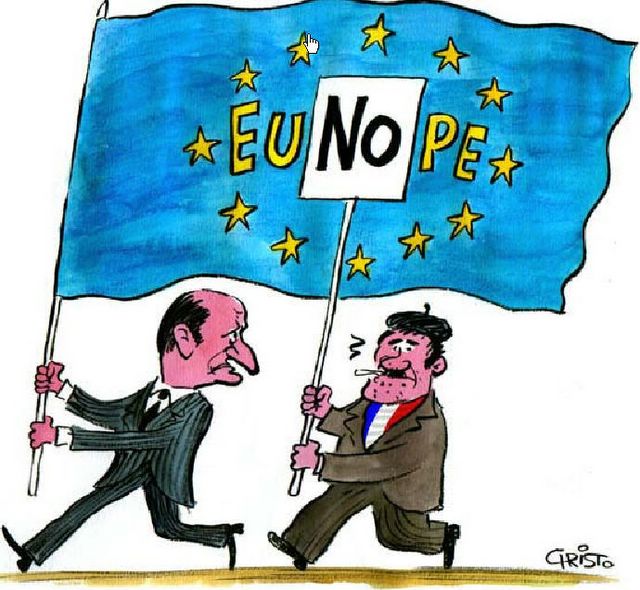Democrat - October 2006 (Number 98)
Euro-federalists
resurrect 'dead' constitution
Report by Brian Denny
After a 'period of reflection' following the French and Dutch rejection of the proposed EU Constitution in 2005, Brussels has decided to try and impose it anyway within the next two years. 
German Chancellor Angela Merkel has insisted: "We need a constitutional treaty and we need it before the next European election" in 2009. Germany has already indicated that it wants to resurrect the now discredited EU Constitution by the end of its presidency of the EU next June.
Meeting with EU Commission President Jose Barroso, Merkel reiterated her view that the EU Constitution should not be slimmed down to make it more acceptable to the voters of Europe.
European Social Model
Merkel has not specified how a compromise could be found, but is expected to produce some meaningless flam about the so-called European social model while pushing through more privatisation and centralisation.
Merkel said Germany will work closely with Portugal and Slovenia, the next two nations to hold the EU presidency, to set a long-term agenda. Berlin's six-month stint starts on 1 January.
Divisions over what to do
EU commissioner Margot Wallstrom said that "the commission would not like to depart too much from the constitutional treaty" and argued that the text should not be opened up for discussion, including majority voting rules and the abolition of national vetoes.
"There are a number of things which were achieved through very difficult negotiations by member states...and which if you start to open up, you open everything," she said.
The remarks of Ms Wallstrom challenge Polish prime minister Jaroslaw Kaczynski who wants to re-negotiate member states' voting rights.
More arguments
By mentioning the Charter of Fundamental rights as a part of the "core" of the charter, Wallstrom is also at odds with French presidential hopeful Nicolas Sarkozy who is ready to ditch this part in his proposed "mini-treaty".
However, British Foreign Secretary Margaret Beckett has described the EU Constitution as a "grandiose project which didn't come off", in a clear sign that the British government is distancing itself from the Constitution due to popular opposition.
These divisions reveal the very difficult position in which the federalists find themselves after the rejection of the Constitution and amid growing hostility to EU institutions and the synthetic single currency.